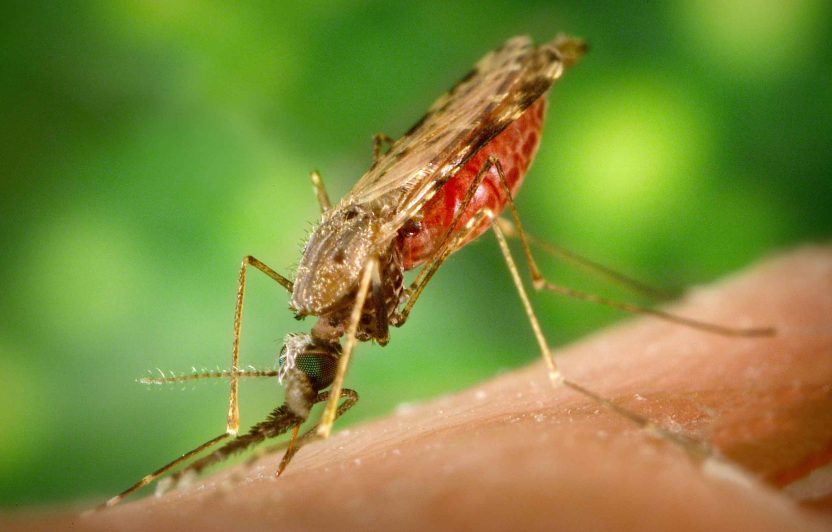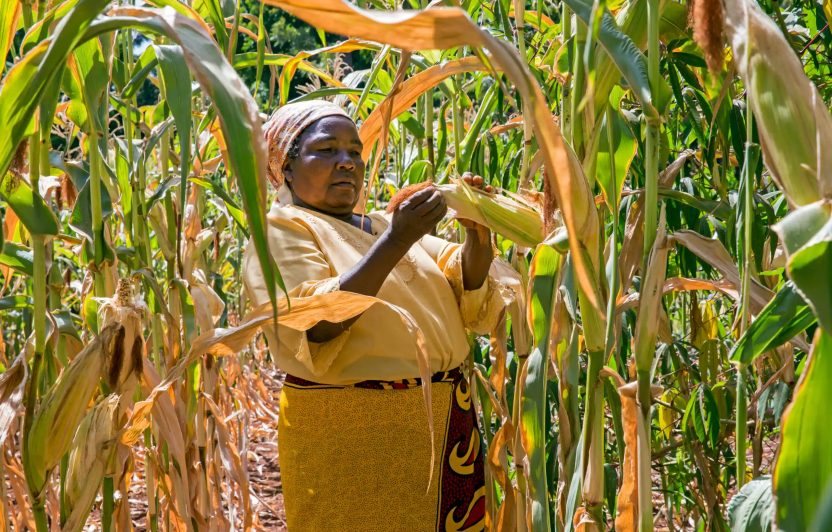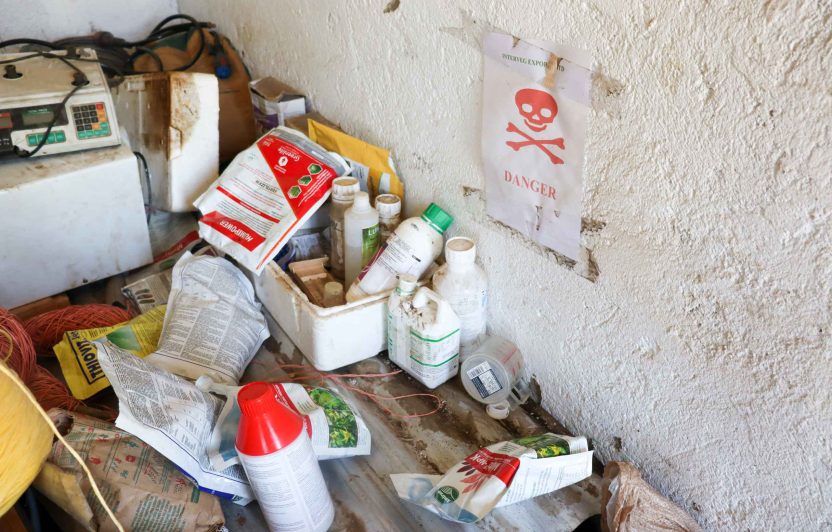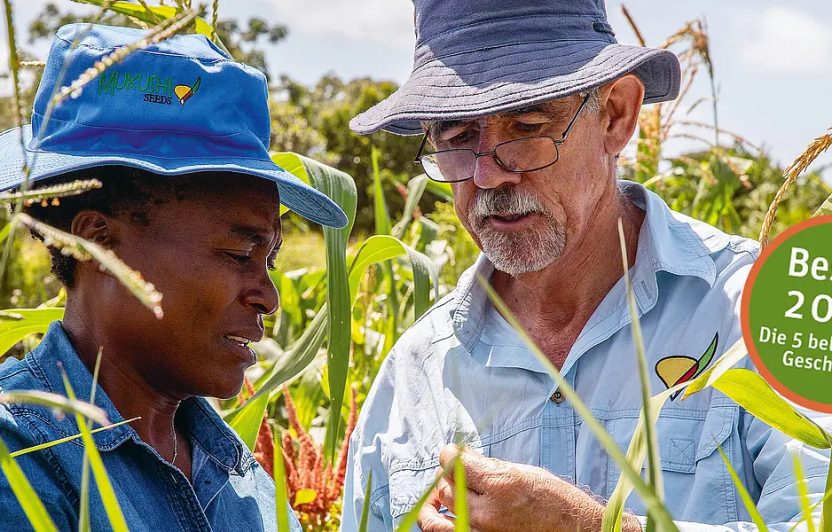The International Centre of Insect Physiology and Ecology (icipe for short) has been a Biovision partner organisation since day one. The research institute, based in Nairobi, Kenya, was founded in 1970 by the visionary Kenyan entomologist Prof. Thomas Odhiambo (1931–2003). From 1994 to 2005 it was headed by Biovision founder and president Hans R. Herren. icipe is using this anniversary as an occasion to provide informative insights into the world of applied ecological research in Africa through short film reports. Biovision is a longtime partner in many of the projects and activities shown in the films.
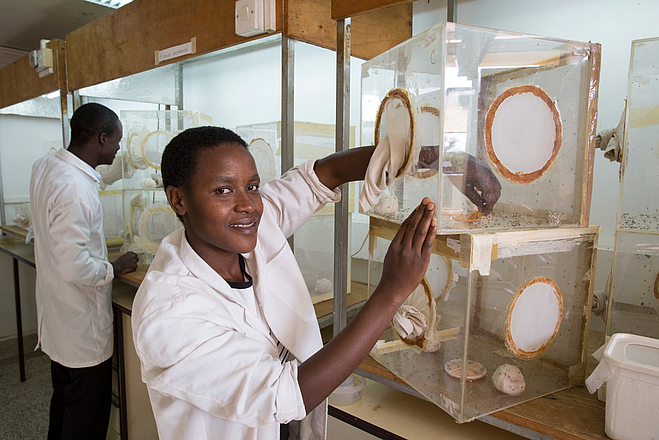
Knowledge transfer from the laboratory to the field
An important element of the joint projects is transferring knowledge about organic agricultural methods to farmers. The videos provide current insights into Biovision’s core activities. During his time as icipe director, Hans R. Herren founded the Biovision Foundation in 1998 together with like-minded people from Switzerland. He recognised the great need to make research findings more accessible to farmers. Since then Biovision has been pursuing its vision of a world with enough healthy food for all, produced by healthy people in a healthy environment. Today, Biovision contributes to the implementation of the UN sustainable development goals and Agenda 2030 regarding food security and organic farming in Africa, Switzerland and internationally. The second development goal, “Zero Hunger”, is its guiding principle.
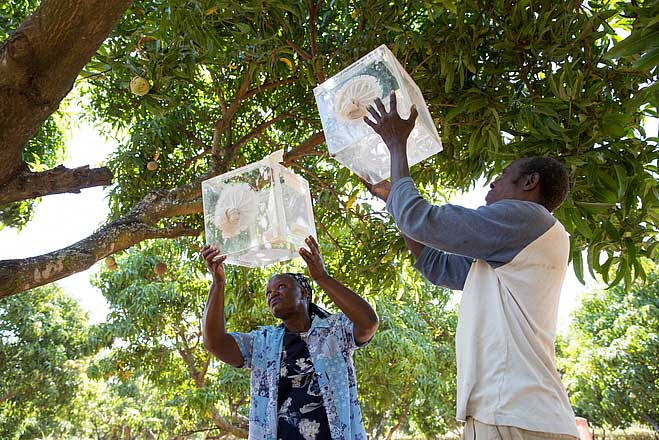
icipe – a strong partner for Biovision in Africa
icipe is the only insect research institute on the African continent that has an international reputation. The institute is recognised and appreciated worldwide as a centre of excellence due to its dedication to scientific research of arthropods (invertebrates with segmented bodies and jointed limbs). Arthropods include the large universe of insects – both beneficial ones and pests in agriculture but also disease vectors such as malaria mosquitoes or ticks.
Barbara Frei Haller, Biovision Foundation Board member and Governing Council member at icipe, praises the institute’s achievements as outstanding pioneering research into harmful and beneficial insects. “icipe has been finding answers to the changing climatic conditions in the tropics for 50 years. In doing so, it has discovered and introduced organic methods to control insect pests in cereal crop cultivation and fruit and vegetable production, plus environmentally friendly measures for controlling disease-carrying mosquitoes or tsetse flies. This helps people and environmental protection”, says Ms. Frei Haller.
We at Biovision congratulate icipe on its 50th anniversary and look forward to continuing our effective cooperation together!
50 years icipe – Link to the video


